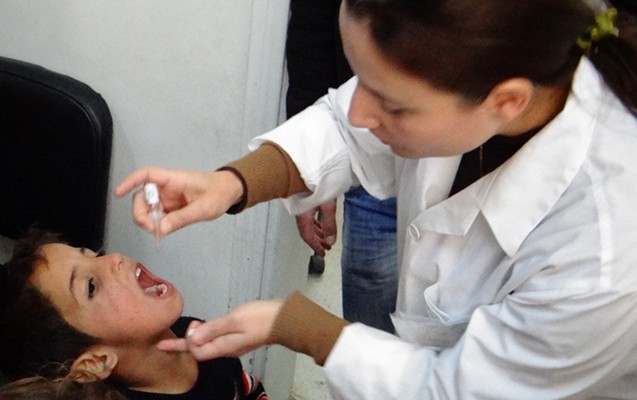
The push to immunize all children against polio has been hampered by the ongoing crisis in the Syrian Arab Republic. WHO and UNICEF have appealed to all parties to cooperate, including through temporary pauses in hostilities where needed, to allow vaccination campaigns to take place and for all children to be protected.
When Dr Salah Salem Haithami, a medical officer with WHO, heard that polio had reappeared in the Syrian Arab Republic, his first thought was: can I go there to help? He had been working for a dozen years on polio eradication in Sudan, but just days later he was deployed to Damascus.
Haithami’s second thought was for children in Yemen, his own country. “Polio does not have a passport – it can affect any child anywhere in the world,” he says. “My motivation is to help stop the polio outbreak in Syria and, in this way, to prevent children outside of Syria from being paralyzed for life.”
Since he arrived in Damascus in October, Haithami has focussed day and night on the polio vaccination campaign. “I have helped order vaccines and other supplies. I have shared our experience from the Sudan and other countries and got agreement for new tactics like house-to-house visits and finger-marking, so that vaccinators really reach every single child. I have met with people in all sectors of Syrian society to try and gain crucial support for the campaigns,” he explains.
|
“All children have the right to be protected from the crippling poliovirus, and the provision of healthcare must remain neutral, regardless of the context.” |
|
Dr Ala Alwan, Regional Director |



